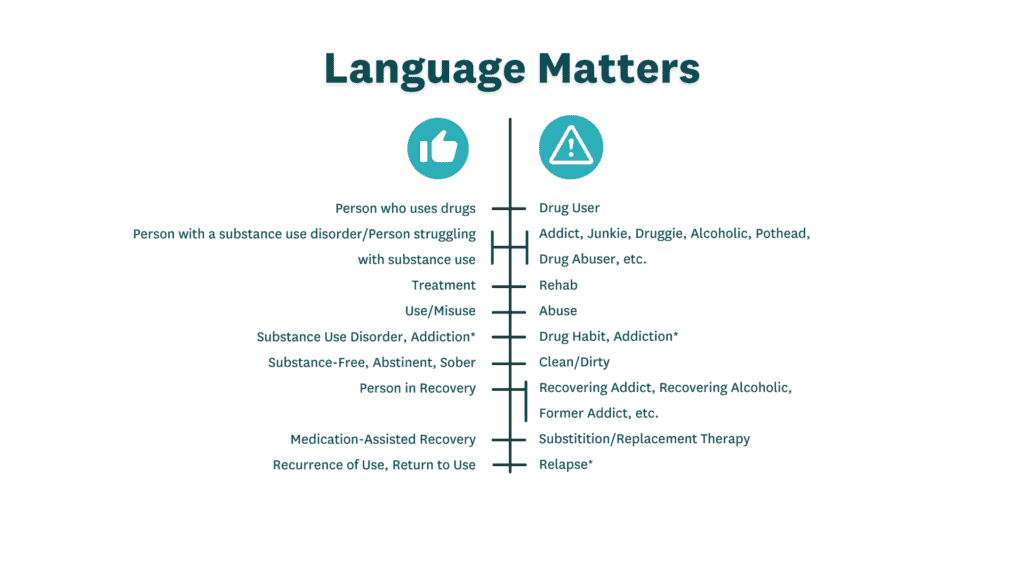Our Language Matters
When SAFE Project talks about stigma and shame, we often refer to person-first language. In short, it describes what a person has, not who a person is. Person-first language conveys respect and acceptance by emphasizing the fact that people with behavioral, psychological, or substance use issues are first and foremost just that: people.
Why does it matter? In short, it’s people first, it’s not the problem first. When we use person-first language, we put the emphasis on a person, but not their diagnosis, condition, or challenge.
Terms like “user,” “junkie”, “addict”, and “crackhead” are demeaning and disrespectful. But when you refer to a “person in recovery from substance use” or “a person with depression”, that can make a big difference in reducing stigma about the disease of addiction or mental health challenges.
There are also other terms that can be adjusted. If a person is being drug tested, they are not “clean” or “dirty.” They either tested negative or positive. When it comes to mental health, perhaps rethink the everyday use of “crazy” or “psycho” because both perpetuate stigma.

On occasion, we may be in a situation where we hear a person with substance use disorder refer to themself as an “addict” or a “junkie.” That is their personal choice. How that person chooses to self-identify is up to them, but it does not give us permission to use that same language.
One of the most common reasons people don’t seek treatment for mental health challenges or substance use disorder is stigma or shame. It affects workers who fear losing their jobs or being treated differently by colleagues. It affects teens and college students who don’t want to appear “different” from friends.
Put Lessons Into Action
In addition to using person-first language, there are other ways you can help yourself, family, and friends by understanding what contributes to stigma.
- Be conscious of your language — person-first language, not problem or issue-first.
- If we are in a situation where we don’t know what the appropriate person-first language is to use, simply ask.
- Seek reliable and factual information to learn more about substance use disorder and/or mental health. (Resource links below)
- If you have a family member or friend managing an often stigmatized health challenge, find support in your community for yourself and for them.
- See the person, not the illness or disorder. Every person is so much more than the challenges they experience.
- Demonstrate empathy and compassion when others share their personal story with you about their challenges. Ask questions, but please don’t pry.
To Learn More About Person First Language:
- Recovery Research Institute Addictionary®
- NIDA: Words Matter – Terms to Use and Avoid When Talking About Addiction
- Mental Health America: Person-Centered or Person-First Language and RecoveryColorado Mental Wellness Network: I’m not suffering: 4 reasons why your dramatic person-first language isn’t helping
